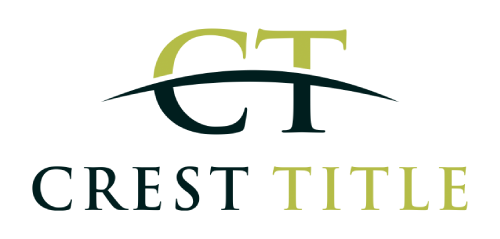The real estate industry is a complex and dynamic market that involves the buying, selling, and renting of properties. It is heavily influenced by factors such as economic conditions, interest rates, demographic changes, and government policies. The industry has been evolving rapidly with the adoption of new technologies and changing consumer preferences. Some of these changes include digital marketing efforts.
As a title company in Birmingham, Crest Title understands the importance on properly marketing yourself as a real estate agent in Alabama. To set up a marketing plan, check out our tips below.
Marketing Plan For Real Estate Agents
Marketing is important for real estate agents because it helps them reach a wider audience and attract potential clients. Effective marketing strategies can also help agents stand out from their competitors and showcase their expertise and unique selling points. This can ultimately lead to increased sales and a more successful real estate business.
How Much Money Should You Spend On Marketing
There is no set amount that a real estate agent should spend on marketing, as it can vary based on a variety of factors such as the location, target audience, and marketing goals. However, it is recommended that real estate agents allocate a portion of their budget towards marketing efforts in order to effectively promote their services and attract potential clients. As a general rule of thumb, many experts suggest allocating around 10% of your commission towards marketing expenses.
Marketing Tactics For Real Estate Agents
To market their services, real estate agents can use a variety of tactics such as online advertising, social media marketing, email marketing, direct mail campaigns, and networking events. Online advertising can include pay-per-click (PPC) ads on search engines or social media platforms, banner ads on relevant websites, or targeted ads on real estate websites. Social media marketing involves creating engaging content and posting regularly on social media platforms such as Facebook, Instagram, and LinkedIn. Email marketing can be used to send newsletters or promotional offers to potential clients. Direct mail campaigns can include postcards, brochures, or flyers sent to targeted mailing lists. Networking events can be a great way to meet potential clients and build relationships with other professionals in the industry.
Identify Target Audience & Competiton
To identify your target audience as a real estate agent, consider factors such as age, income, occupation, and location. You can also analyze your past clients to identify common characteristics. For competition, research other real estate agents in your area and analyze their marketing strategies and services offered. This can help you differentiate yourself and tailor your approach to better appeal to your target audience.
Develop Branding And Messaging
To develop branding and messaging for real estate agents, consider the following steps:
- Determine your unique selling proposition (USP)
- Choose a brand personality and voice
- Develop a tagline or slogan that reflects your USP
- Create a visual identity, including a logo and color scheme
- Craft messaging that communicates your USP and resonates with your target audience
Consistently apply your branding and messaging across all marketing channels, including social media, website, and print materials. Remember to stay authentic and true to your brand throughout the process.
Generate Leads
Implementing lead generation tactics like hosting open houses and offering free home valuations can help attract potential clients and generate leads for your real estate business. These tactics can provide an opportunity to showcase your expertise, build relationships with potential clients, and ultimately, increase your chances of closing a sale.
How To Track And Follow Up With Leads Using CRM Software
Using CRM software to track and follow up with leads involves the following steps:
- Inputting lead information into the system: This involves collecting and storing data such as name, email, phone number, and other relevant details.
- Categorizing leads: This involves segmenting leads based on their level of interest, stage in the sales cycle, and other relevant factors.
- Setting up follow-up tasks: This involves creating tasks and reminders to follow up with leads at specific intervals.
- Tracking interactions: This involves keeping track of all interactions with leads, including phone calls, emails, and meetings.
- Analyzing data: This involves using analytics tools to track the effectiveness of different lead generation and follow-up strategies.
By following these steps, real estate agents can use CRM software to effectively manage their leads and convert them into paying customers.
Measure And Evaluate Your Marketing
Setting metrics for a real estate marketing plan allows you to monitor your progress and measure the success of your efforts. You can consider several metrics, including lead generation, conversion rate, sales volume, ROI, website traffic, social media engagement, and brand awareness. To ensure the effectiveness of your metrics, it’s important to set SMART goals that are specific, measurable, achievable, relevant, and time-bound.
Crest Title: Your Real Estate Partner
Marketing for real estate agents can take time. No matter if you are a new agent or a veteran of the industry, you can check out these tips to improve your real estate marketing strategy.
Remember to contact Crest Title Company in Birmingham when your client is ready to close. We handle all things real estate titles and closings so you don’t have to. Order your real estate title online today!

